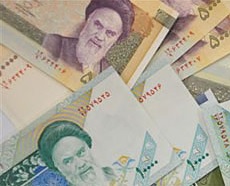
The economy is a pivotal issue in Iran’s presidential campaign, since the country now faces its most serious crisis since the 1980-88 war with Iraq. Virtually everyone—including both supporters and critics of the regime—is demanding change. Most candidates are too.
But the economy has also sparked the widest array of solutions. Campaign slogans often illustrate the political divisions, even though the field of candidates is overwhelmingly conservative. The only thing that unites them is criticism of President Ahmadinejad’s poor economic performance.
The candidates’ plans vary widely, from weaning Iran off oil revenues to creating jobs for university graduates. Mostafa Kavakebian, a reformist, even calls for improving relations with the United States for sanctions relief ― if Washington softens its tone. Most candidates have not yet detailed how they will achieve their lofty promises. The following are the economic agendas of eight major candidates, according to Iranian news media.
Ali Akbar Velayati, chief foreign policy adviser to the supreme leader
• Wean economy off oil revenues
• Don’t waste public money
• Complete national development plans
• Fix the economy in three years
Mostafa Kavakebian, secretary general of the Democracy Party
• Improve ties with the United States for sanctions relief
• Lower inflation to below 20 percent
• Lower unemployment to below 10 percent
Mohammad-Baqer Qalibaf, mayor of Tehran
• Stabilize economy in two years
• Create jobs for university graduates through effective management
• Follow the 20-Year Vision Plan, which requires Iran to be a top economic power in the region by 2025
Mohammad Reza Bahonar, deputy speaker of parliament
• Control cash flow and rising prices
• Decrease the inflation rate to a single-digit number
• Revive the Planning and Budget Organization that Ahmadinejad dissolved in 2007
Mohsen Rezaei, Expediency Council secretary and ex-Revolutionary Guards chief
• Tie the currency to non-oil exports and support domestic producers
• Increase household income and support a grassroots economy in towns
• Reduce unemployment
• Give farmers “green” subsidies
•Reduce the inflation rate to a single-digit number
Hassan Rouhani, former head of the Supreme National Security Council
• Lift U.N. and unilateral sanctions on Iran through improving relations with other nations
• Boost domestic production
• Reduce unemployment and employ more academics
Ali Fallahian, Assembly of Experts member and former intelligence minister
• Fight corruption by using more electronic transactions
• Continue subsidy reform
Mohammad Hassan Aboutorabi-Fard, deputy speaker of parliament
• Decrease national expenses to dampen effect of sanctions
• Increase the value of Iran’s currency by boosting domestic production
• Reduce dependence on oil revenues
Sampling of Iranian news sources for this article on the presidential race:
Online news media are welcome to republish original blog postings from this website in full, with a citation and link back to The Iran Primer website (www.iranprimer.com) as the original source. Any edits must be authorized by the author. Permission to reprint excerpts from The Iran Primer book should be directed to permissions@usip.org
